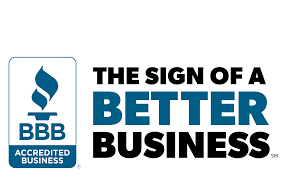Who pays HOA fees at closing? Does the buyer take on the responsibility or does it remain with the seller? Find out below.
In this article:
Who Pays HOA Fees at Closing?
If you’re thinking about buying a home and moving into a homeowners association, you need to consider several things. The HOA is an important part of the quality of life in the community. So, you need to make sure you take the association as a factor in your decision. It’s best to do your homework when it comes to the HOA home you are buying, too.
Who knows, there might be unpaid HOA fees that someone will have to cover, too.
What Are HOA Fees?
What is an HOA fee? HOA fees, association dues, HOA assessments – all these are part of living in a managed community. Living in an HOA or a condo is super convenient.
A lot of things are taken care of for you, and this may include lawn care, maintenance, even utilities. Plus, you also get exclusive amenities that you can use at no additional charge, like gyms, lounges, and community pools. These things cost money, though, and the HOA fees you pay go into maintaining the community.
What do HOA fees cover? For the most part, HOA and condo fees cover all the services and amenities you get to enjoy, plus some others that you don’t immediately see. Your fees go into maintenance services, common area utilities, and security expenses.
Part of it also goes towards insurance premiums and property management as well. And if your HOA is properly looking out for its finances, part of your HOA fees should go into an HOA reserve fund, too.
What Happens If You Don’t Pay HOA Fees?
The first thing that happens if residents don’t pay HOA fees is that the association then fails to meet its budget. That means it will not have enough money to pay for the budget items for this year. Then, once vendors stop rendering service to the community, conditions in your neighborhood might quickly degrade.
Your common pools don’t get maintained, and your gym equipment doesn’t get repaired. Over time, the aesthetics of the community declines too. Soon, property values will drop as well.
The HOA will not just sit still and let that happen, though. In most cases, the HOA will levy fines for late fees and delinquent dues against a nonpaying resident. The association may have to escalate that by putting a lien on the delinquent resident’s property. A lawsuit might even happen as well.
Can HOA fees be negotiated? All homeowners, even the board members, pay HOA fees. No single member is exempt from paying them. Although you can attempt to negotiate these fees, you will likely not succeed in getting the board to lower the fees just for you. In some cases, though, you can request a payment plan if you can’t swing the fees financially.
Pro-Rated HOA Dues at Closing
 Homeowners associations typically collect dues on a monthly or yearly basis. If a homeowner has already paid for the month or year and decides to sell their house, what happens then? Who pays for HOA fees at closing?
Homeowners associations typically collect dues on a monthly or yearly basis. If a homeowner has already paid for the month or year and decides to sell their house, what happens then? Who pays for HOA fees at closing?
Typically, in property sales, the buyer shoulders most of the costs. This includes appraisal fees, prepaid insurance, credit report fees, notary fees, tax servicing fees, and the like. In the case of HOA fees, though, since the seller already made use of the association’s amenities and services, the fees can be pro-rated.
For example, if the seller closed the sale on their home at the end of June, and the HOA charges $3,600 in annual dues, then the buyer can simply pay $1,800 in pro-rated dues. The same principle applies for monthly dues where the seller closed mid-month.
Who Pays for the HOA Transfer Fee?
An HOA transfer fee covers various association expenses when a property transfers ownership from the seller to the buyer. This usually includes the preparation of documents and the distribution of the association’s governing documents to the new homeowner. The HOA must disclose any applicable transfer fees to all parties before the sale of the property.
But, between the seller and the buyer, who is responsible for paying the HOA transfer fee? Generally speaking, the seller shoulders the responsibility of paying the transfer fee. This is not a universal rule, though, so it can also depend on what state laws and the HOA governing documents say.
Overdue HOA Fees at Closing: Who Pays?
Dealing with overdue HOA fees when selling a house is always a tricky subject. If a homeowner with overdue fees sells their house, that doesn’t automatically mean they are free from the debt. In fact, this debt is the seller’s personal liability. That being said, this also doesn’t mean that the buyer is free from the debt, too.
In most cases, a seller can’t close the sale on their property until they arrange for the debt to be cleared. Usually, this means using the money earned from the sale to pay off the overdue fees. Alternatively, the buyer can also agree to shoulder the burden of paying for those fees at closing.
If the issue isn’t resolved before closing, then the HOA can still attempt to collect the money from the seller. The HOA might also place a lien on the property. Even worse, if the debt remains unpaid, the HOA can initiate foreclosure proceedings even after the buyer has moved into the house.
All About HOA Disclosure Requirements
Disclosing HOA documents for closing is a critical step that no seller must skip. Any crucial documents relating to the HOA not disclosed at closing can cause problems for the new owner in the future.
What Is an HOA Disclosure?
An HOA disclosure consists of all the association documents that the new owner will need. This typically includes the bylaws, CC&Rs, association rules, and financial documents, as well as any amendments that have been made. It should also include answers to a list of frequently asked questions.
Why Are HOA Disclosures Important?
An HOA disclosure serves many purposes. For one thing, new owners must know the covenants and rules that govern the community so that they can follow them. In doing so, they can avoid violations and potential penalties. They must also know how much they need to pay in monthly dues, including when to pay them and how. Finally, buyers have a right to know the association’s financial condition.
How Much Do HOA Disclosure Documents Cost?
HOA disclosures are very thick, consisting of about 150 to 300 pages on average. Because of that, the cost of obtaining these documents can be quite expensive. Sellers should expect to pay an HOA disclosure fee of $200 to $600. In some states, though, there is a limit to how much an association can charge for disclosure documents. For instance, in Arizona, the limit is $400.
Who Is Responsible for HOA Disclosure Documents?
Generally, the seller is the one responsible for providing the new owner with the HOA disclosure documents. Since these documents are usually costly to produce, some sellers take the shortcut of printing out all the documents they deem necessary themselves — usually from the HOA website. Others make a formal request for the documents to the HOA.
Although this action is certainly possible, it’s not recommended. The seller may mistakenly provide the buyer with outdated copies and create more problems than they intended to solve. The best way, by far, is to ask their real estate agent to obtain the disclosure documents.
The Role of an HOA Closing Letter
When you buy a house that is a part of an HOA, condo, or even a Property Owners Association (POA), fees must be settled at the closing table. After all, that house or condo unit is part of that community, and you as the prospective owner also become an automatic member of the association as well.
How do you find out, as the home buyer, if there are any fees due that are attached to the home? That’s where the closing attorney plays an important role. The closing attorney needs to formally request an HOA closing letter on that home, before the closing date. Generally, associations require that any balance for that home must be paid at the time it is sold. Those should certainly factor into the offer price for the home.
Closing a Home With HOA Fees Due
In a typical home sale involving unpaid HOA fees, the closing attorney’s role is crucial. The attorney needs to ask for a closing statement on time.
The HOA board of directors also needs to complete and submit the closing letter on time as well before the closing date. An HOA management company may even be involved, and do the transaction on the board’s behalf.
To deal with the unpaid HOA fees, closing checks then need to be sent, as agreed on in the HOA letter for closing. The HOA, then, should be notified of the payment details, so it can record the HOA fee payment. All is well, and the new owner can move in with no problems.
Possible Issues With Unpaid HOA Fees at Closing
 However, sometimes one or more of these steps are missed, or miscommunication happens. Then it becomes the HOA board or the HOA Management Company’s responsibility to fix the issue.
However, sometimes one or more of these steps are missed, or miscommunication happens. Then it becomes the HOA board or the HOA Management Company’s responsibility to fix the issue.
The first step, as you might expect, starts with checking with the closing attorney. Did the closing attorney properly request the closing letter? Was the new buyer’s information provided in the request accurate and up to date?
Maybe the closing checks just did not clear on time. In that case, things can be as simple as getting in touch with the closing attorney. In most cases, just letting the attorney and the buyer know that the closing checks are still due will suffice. The checks are re-sent or funded properly if they need to, and everything gets settled.
A missing closing letter can be a big issue, however. If the closing of the home sale was done without a request for a closing letter, then it can be a problem.
The HOA board can fix this by first contacting the buyer, and requesting them for a copy of their HUD settlement statement. It’s the standard mortgage lending form that has all the details the HOA will need to look into the matter.
In the HUD, they will be able to find proof of ownership for the buyer, to establish that the sale took place. It will also have the contact information of the closing attorney as well. Thus, they now have a way to contact the person responsible for collecting the unpaid HOA fees at closing.
Collecting Unpaid HOA Fees After Closing
With the HUD information at hand, the HOA board or the management company can now proceed with the next step. Typically, it involves sending out a closing letter for the property – the same one the attorney should have requested in the first place. This letter goes to the closing attorney, who is now responsible for collecting these fees. Also, this letter will now have a deadline as to when the checks are due.
The closing attorney, in most cases, will write up the checks and submit them immediately to keep things from getting out of hand. In rare cases, however, the closing attorney is unable to pay or refuses to. In this case, the HOA has no recourse but to collect from the new homeowner. The buyer is then free to get in touch with the closing attorney to dispute the charges.
Who Pays HOA Fees at Closing? Answered!
Both the buyer and seller may be responsible for paying HOA fees at closing. It all really depends on the situation and the agreement they entered. Of course, the best way to avoid problems with overdue fees at closing is for homeowners to pay them religiously.







